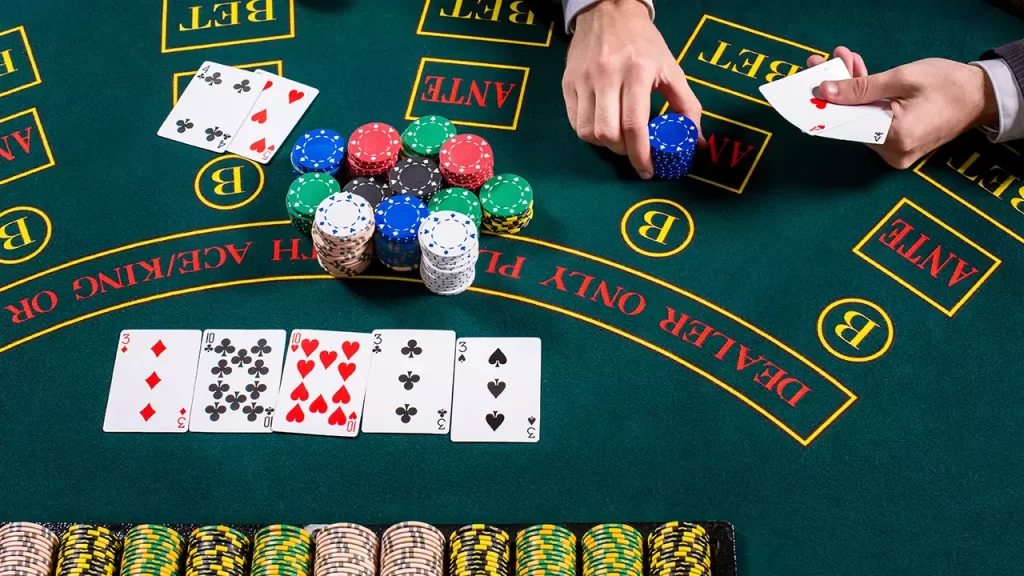
Poker is more than a card game – it’s an intense psychological battlefield that demands confidence, emotional intelligence, patience, discipline and adaptability from its participants.
Successful players are humble and open to continuous improvement. They treat losses as learning opportunities and never let pride stand in the way of making necessary adjustments.
Extroverts
Extroverts are outgoing, social individuals that thrive in social settings. They’re confident, energetic and adept at quickly making new friends – qualities which come in handy at the poker table since extroverts can easily read other players well and form connections quickly with opponents.
People high in agreeableness tend to be warm, friendly, and welcoming towards others – traits which can prove invaluable at the poker table, where these traits make friends more comfortable when competing together. Furthermore, these people may also be open to new experiences that can benefit their play at poker.
Poker players with high levels of conscientiousness tend to be methodical, organized and disciplined – qualities which can prove invaluable on the tables. Not only are these qualities helpful when climbing rankings and improving game play but they are more likely to stick it out even when losing, which makes a strong statement about their commitment and dedication towards becoming successful poker players.
Introverts
Poker is a game that demands emotional control from its participants; this may not always be easy, but this trait can prove immensely valuable in this particular sport.
This study revealed that players who scored higher in terms of introversion were more successful at online poker, making sense given the solitary nature of this solitary activity. Extrovert personalities may find their presence an obstacle.
Introverted players tend to spend time alone, recharge their batteries, and focus on what excites them about the game. This time for self-reflection and strategic refinement allows introverted players to gain an Inner Edge at the table by analyzing opponents, reading body language, and making better decisions. A study also revealed that conscientious players are more successful online poker players – likely because they work harder and adhere strictly to poker rules. Another characteristic that was measured during this study was emotional stability (neuroticism).
Emotional Control
Attractive personalities alone won’t suffice if a poker player wants to become the best. Emotion control and discipline are keys for decoding opponents’ subtle tells and remaining focused during long sessions.
Confidence is key to mental stability, allowing players to make bold moves and trust their instincts even under pressure. Successful poker players also display an admirable level of humility; viewing losses as learning experiences rather than embarrassments or failures.
Laakasuo and his colleagues invited 478 poker players to take an online survey that measured their personality using the HEXACO model, which measures honesty/humility, emotionality, extroversion, agreeableness and conscientiousness. Although further research would benefit from a larger sample and more granular comparisons, this initial research provides interesting initial insights into successful poker player personalities and offers interesting initial comparisons. Eventually the research team hopes to uncover further links between personality traits and poker strategy; for now though these findings can help poker players gain more confidence in their abilities while improving their game.
Patience
Maintaining composure under pressure is one of the key traits required of poker players, enabling them to make bold decisions and execute high-stakes bluffs with complete trust in themselves, even when their opponents may detect tells from them.
Sticking to their strategy also enables them to remain disciplined when losing, which is especially crucial when playing online poker where physical tells may not always indicate whether an opponent has been lying.
Discipline, analytical thinking and focus are also vital personality traits in poker. Part 2 of our series will examine how these personality traits combined with confidence and emotional intelligence allow poker players to navigate the psychological and strategic complexities of both live and online environments with ease. It will also shed light on additional characteristics which contribute to success like adaptability, patience and humility.







